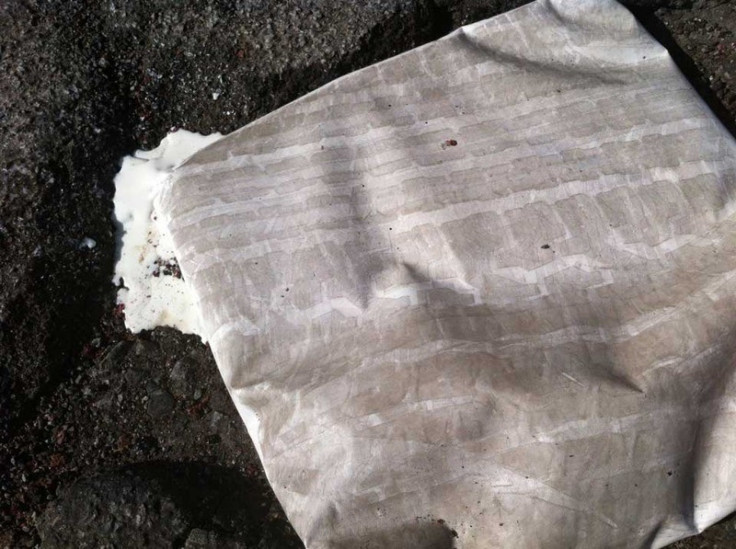Cleveland Students Fix Potholes With Silly Putty-Like Liquid [VIDEO]

Potholes beware -- engineering students designed a liquid that fills potholes and becomes solid when driven over. Students from Case Western Reserve University in Cleveland, Ohio came up with the idea of using non-Newtonian fluids as a perfect fix for potholes.
Non-Newtonian fluids act as liquids or solids depending on the applied forces, unlike regular Newtonian fluids that flow the same regardless of any applied forces. The Case Western students used a shear-thickening fluid that but acts likes a solid when pressure is applied.
When there's no force being applied to it, [a shear-thickening fluid] flows like a liquid does and fills in the [pothole], Curtis Obert, one of the team members, told ScienceNow. But when it gets run over, it acts like a solid. By working with different size particles, you can get different viscosities.
Shear-thickening fluids, like the classic mixture of cornstarch and water, have a low viscosity when moved gently. However, the harder you push on it, the higher the viscosity becomes.
If you push it really rapidly, the particles in the corn starch don't have time to rearrange and get around one another and they jam up, Michael Graham, a chemical engineer at University of Wisconsin, who was not involved in the project, told ScienceNow.
The force of a car driving over the fluid creates a high enough viscosity that the car drives right over the pothole instead of sinking in. The students did not reveal what their product is made out of, but said it is not harmful to the environment and safe enough to eat.
Road workers typically patch potholes temporarily by packing the gaps with asphalt -- a time-consuming process that requires specialized equipment and knowledgeable personnel, the students said. They created a fluid filled bag that can be laid right into the pothole, filling it in seconds with no experience necessary. The bags are waterproof and sturdy, and the students found they hold up well after a week of continuous use.
City workers in East Cleveland, where testing is underway, say the bags work, but share a concern about how the fix will hold up through the winter, when ice, snow and salt change road conditions.
I think it will hold up under traffic -- I think that part will work, Ross Brankatelli, city engineer for the city of East Cleveland, told ScienceNow. But whether it will be able to handle real winter temperatures and be cost competitive as a semi-permanent fix, I have some reservations about that.
The bags cost more than traditional fixes, but are reusable. The city could also save money in the long run due to reduced labor costs, the students said. Any city worker can drop a bag into a pothole to patch it until a permanent fix is in place.
The bag might cost a hundred dollars but you can reuse it a hundred times, and by that time you'd be saving a ton of money, Obert said.
The students won first prize and $9,000 in the Saint-Gobain Student Design Competition. They also received a piece of advice from one of the judges, according to the Cleveland Plain Dealer. Run like hell and start selling this, professor David Schiraldi said.
© Copyright IBTimes 2024. All rights reserved.





















